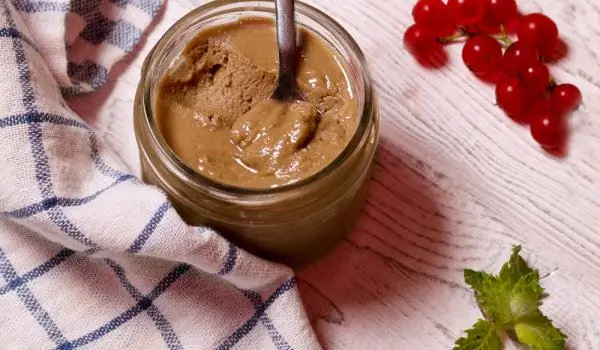2025 Author: Jasmine Walkman | [email protected]. Last modified: 2025-01-23 10:18
Vitamin K. has an established reputation for promoting blood clotting. Its abbreviation comes from the German word koagulation. Most newborn babies get a "shot" of vitamin K as a preventative measure against bleeding.
This coagulating function has long overshadowed other important properties of this vitamin - reducing the risk of cancer and protecting against diabetes, calcification and internal bleeding. The growing body of research reveals the enormous benefits of this otherwise forgotten vitamin, the catalyst behind many physiological processes.
What is vitamin K?
Vitamin K is a compound. Two forms appear in nature: K1, which is found in plants, and K2, which is synthesized in our intestinal tract. K2 is also present in animal products and fermented foods. Synthetic form K3 is no longer used to treat vitamin K deficiency.
How does the body process vitamin K?
Vitamin K. is a fat-soluble vitamin, which means that the body needs fat to absorb it properly. Like others, vitamin K is stored in the liver and fat cells. However, vitamin K differs from other fat-soluble vitamins in that the body stores very little of it and a lack of regular intake can quickly deplete the supply. Through a process known as the vitamin K cycle, trace elements are reused for protein synthesis.
Vitamin K deficiency

Leading vitamin K researcher Dr. Sea Vermeer believes that almost everyone has vitamin K deficiency. Although most of us consume enough foods rich in vitamins, we do not get enough to protect ourselves from a number of other health problems. However, clinically significant vitamin K deficiencies are rare and are usually limited to people taking drugs that interfere with vitamin metabolism. Vitamin K deficiency can lead to:
• arterial calcification;
• cardiovascular diseases;
• varicose veins;
• osteoporosis;
• leukemia and cancer of the prostate, lung and liver;
• dental caries;
• pneumonia.
Benefits of vitamin K
Vitamin K transports calcium to the body to help regulate blood clotting. It is a key player in the production of four of the 13 proteins needed for coagulation. Studies show that vitamin K plays a major role in platelet aggregation. This nutrient also promotes blood circulation in peripheral bodies and tissues.
A 2013 study published in the Neurobiology of Aging showed that vitamin K. is inseparable for brain development. Vitamin K-dependent proteins are directly involved in cognitive function. Vitamin K helps stop degenerative disorders such as Alzheimer's by improving memory.
Researchers have found that Vitamin K contributes to bone building. Low levels of vitamin K are associated with low bone density. The results of a study suggest an association between increased vitamin K intake and a lower risk of hip fracture in adults, as well as higher bone mineral density in women.

Photo: 1
Vitamin K has a low toxicity potential in forms K1 and K2. The Food and Nutrition Council of the Institute of Medicine of the National Academies did not report any negative effects resulting from the consumption of nutrients. However, some situations require precautions with this vitamin.
For example, some medications can adversely affect vitamin K. People with blood disorders and pregnant women need to be especially careful. These people, as well as those with a history of heart disease or stroke, should consult their doctor before changing their vitamin K intake.
Foods containing vitamin K
- green vegetables - spinach, onions, lettuce, broccoli, cabbage, peas, cauliflower;
- legumes - beans, green beans, lentils;
- fruits - strawberries, blackberries, plums, blueberries, grapes, kiwi.
Recommended:
Foods With A Cleansing Effect On The Body

When we talk about purification of the body from harmful toxins , food is really the best medicine. You will be amazed when you learn that many of your favorites foods cleanse the detoxifying organs in the human body such as the liver, intestines, kidneys and skin.
Cocoa Beans Have A Purifying Effect On The Body

Cocoa beans are extremely rich in vitamins and elements - they contain magnesium, calcium, copper, potassium and more. Magnesium and potassium take care of the functioning of all major organs. Cocoa beans supply the body with the necessary amounts of potassium and honey, which in turn help a healthy cardiovascular system.
KFC - An Incredible Story Of Human Will And Success

Do you know the story of Colonel Sanders and his recipe for fried chicken from Kentucky ? It is an incredible story of the human will and the success he wants to be pursued for years and years to smile at the end of the road, with all the generosity he is capable of.
The Combination Of Honey And Tahini And Its Health Benefits

Mixing different flavors in food can change a person's perception of the possibilities of a good food product. In this respect, the tandem between honey and tahini holds one of the first places and is a combination that should not be missed.
Minerals In The Human Body

Minerals in the human body are extremely important for its proper functioning. If it is deprived of them, the body will not be able to absorb nutrients and thus eliminate waste. Iron - it is necessary for the production of hemoglobin and the transport of oxygen to the cells.

